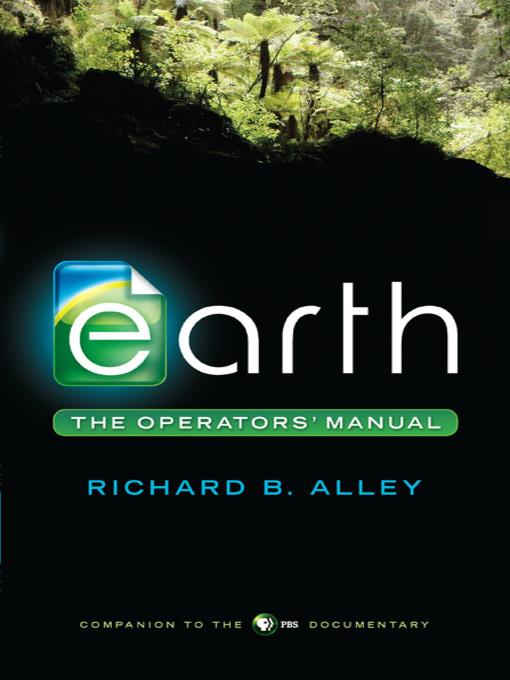
Earth
The Operators' Manual
- اطلاعات
- نقد و بررسی
- دیدگاه کاربران
نقد و بررسی

February 7, 2011
In this companion book to the PBS television series of the same name, Alley, a Penn State professor of geology who served as a member of the U.N. climate change committee, presents a primer on combatting global warming. The book begins with a history of how fuel—from trees, whale oil, and petroleum—has been instrumental to civilization and how we tend to exhaust our sources. He goes on to explain how scientists study climate change and why the evidence is convincing, and ends with a call to action and an overview of possible solutions. Laden with professorial jokes, unexpected similes (studying climate change is like watching kindergarten soccer; stabilizing the atmosphere is comparable to sewage treatment), photos of the author's daughters, and exhaustive responses that should demolish any and all misinformation about global warming circulating around the U.S., this optimistic book ought to convince even the most obstinate climate-change denier.

February 15, 2011
Alley (Geology/Penn State Univ.) brings the history of energy to light in this companion volume to a forthcoming PBS two-part special.
The author has a noble agenda—the deployment of good science as it pertains to human-caused and natural climate change—and it's bracing when he freely admits that his expertise ("a geologist-turned-glaciologist-and-climatologist") has been the happy beneficiary of oil-company largesse. True to its origins as a TV investigatory series, Alley presents the big picture, but with lots of detail. His voice is avuncular and learned; the pace is leisurely, but each chapter's short segments are punchy with well-researched information. He follows the scientists at work—"after admiring a new idea for a few seconds, a scientist's job is to test it, to see if it is consistent with the basic laws of science and if it makes successful predictions not yet conducted"—and in that service he explores climate modeling; tracks historical climate change through sedimentary evidence, drifting continents and planetary orbit; and examines sun-spot cycles and temperature fluctuations. A firm believer in the greenhouse effect, he encourages us not to delay in activating energy alternatives, whether they are economic incentives to cut carbon-dioxide emissions or the panoply of offerings that include, sun, wind, plant, wave, geothermal, tide and hydroelectric. Today's technology makes these feasible, though their application will take time, so invest in them now, as a few generations down the road they will be crucial.
An engaging, energetic study of humans and how we use energy—and should use it in the future. Stay tuned for the PBS special.
(COPYRIGHT (2011) KIRKUS REVIEWS/NIELSEN BUSINESS MEDIA, INC. ALL RIGHTS RESERVED.)

Starred review from March 1, 2011
What makes us human, Alley suggests, is our use of external energy. Our ancestors corralling of fire enabled them to cook, which, scientists believe, fueled the evolution of our large brains. We subsequently developed agriculture to make our food supply reliable and sustainable, yet weve remained hunter-gatherers when it comes to energy. A professor of geology and a member of the Nobel Peace Prizewinning United Nations Intergovernmental Panel on Climate Change, Alley, a creative thinker and entertaining writer, offers a fresh look at our history of burning trees, whale oil, and fossil fuels, which changed the world for better and worse. Now that oil supplies are dwindling, its time to establish sustainable forms of energy that will also curb carbon emissions. Alley thoroughly explains the dynamics of global warming and its negative consequences, and parses the economic benefits of renewable energy. He also forthrightly addresses Climategate, the politicization of science, and common misperceptions that stoke skepticism about what he convincingly demonstrates is the solid science of global warming. Alley concludes with suggestions for a measured transition to a combination of wind, solar, sea, and geothermal power. Alleys lively and positive Earth operating manual is the substantial companion book for a new PBS series that will air in April to mark Earth Day.(Reprinted with permission of Booklist, copyright 2011, American Library Association.)




دیدگاه کاربران